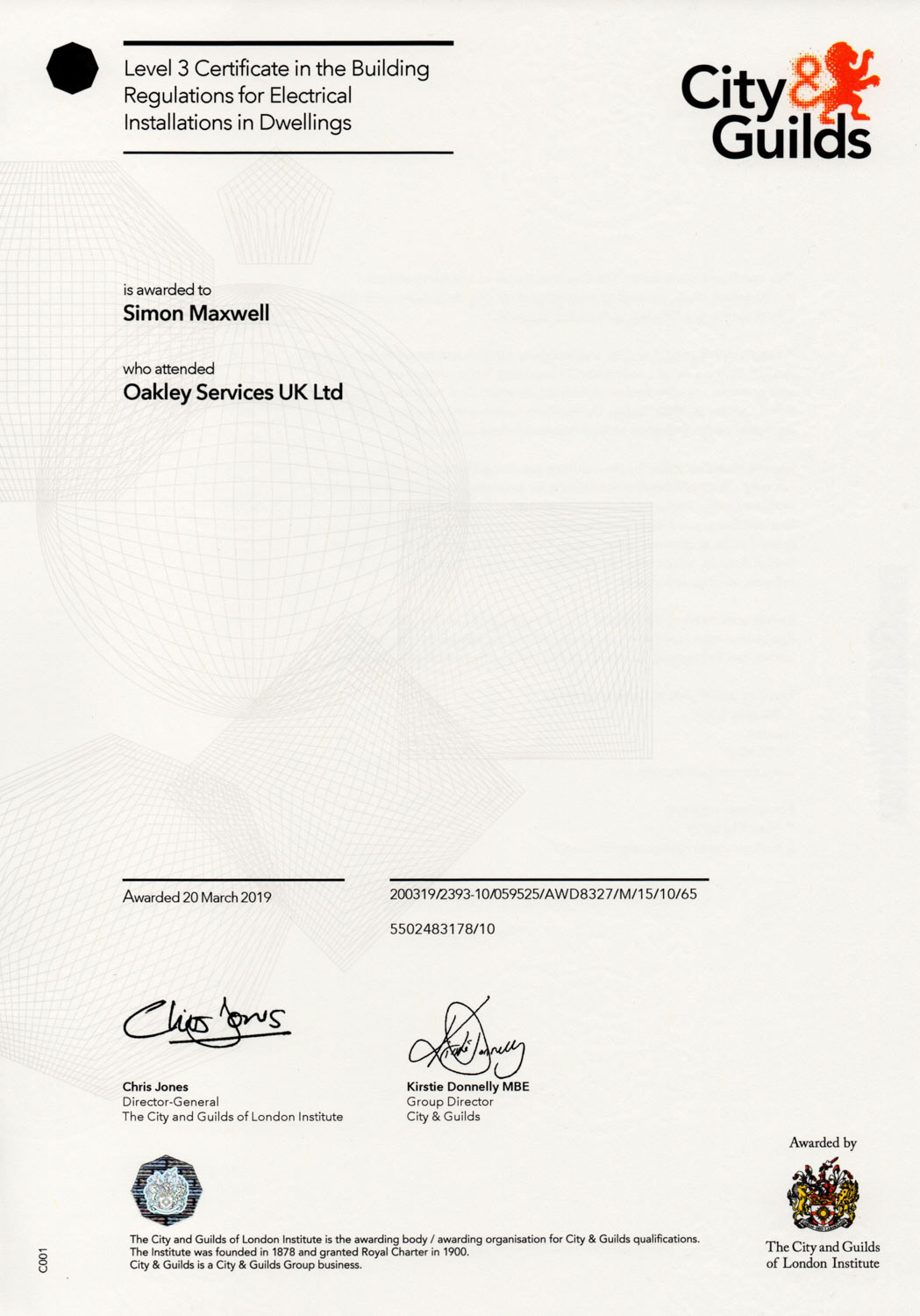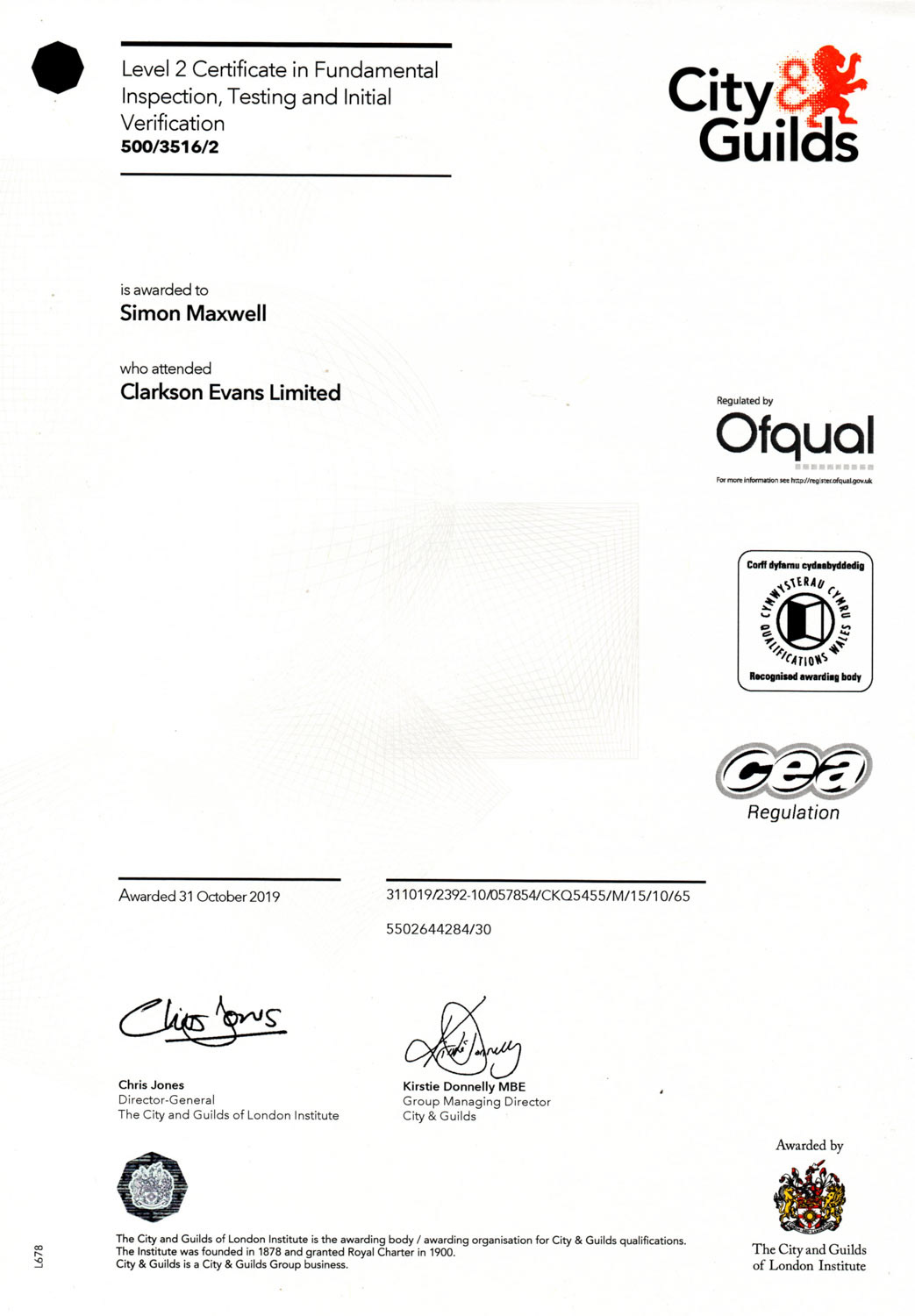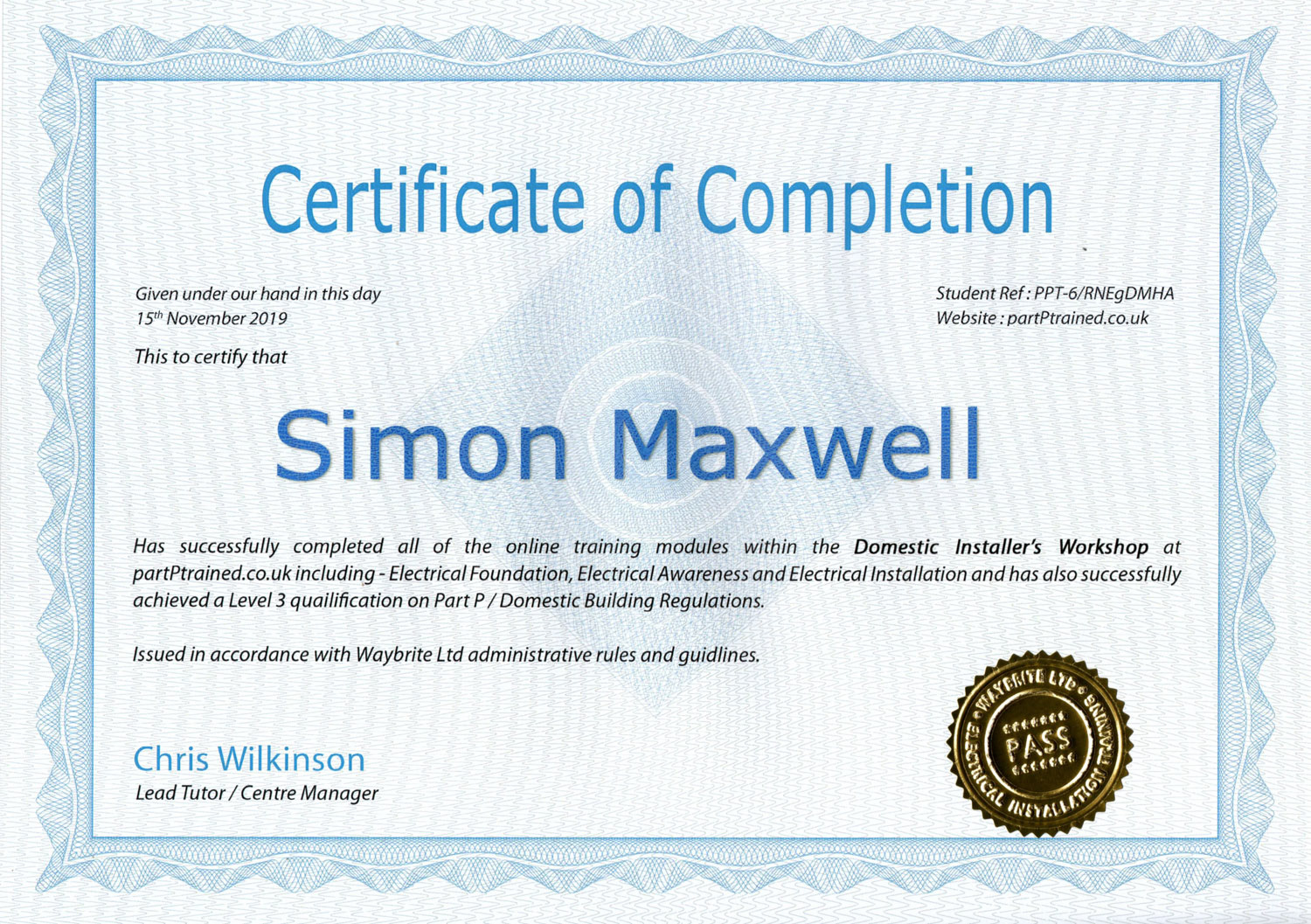Please read this before contacting me regarding any sort of electrical work:
I am not yet a fully registered electrician, and nor am I yet a registered member of one of the Competent Persons Schemes (CPS) with NICEIC, NAPIT or ELECSA.
What does this mean in practice? It means I am only legally allowed to undertake very limited or "minor" electrical work; such work is classed as "non-notifiable" as it does not require sign-off by building control. Work such as replacement or relocation of sockets and lighting points on existing circuits only qualifies as "non-notifiable" work. Any work which involves the creation of a new circuit, and also work in some specific areas such as bathrooms, is classed as notifiable.
I will not undertake such work until I am a member of a CPS (whose members are able to self-certify notifiable work).
For full information about what constitutes Minor Electrical Work please visit this page>>>
IMPORTANT STATEMENT
All minor electrical works which I might undertake are installed with reference to the current version of the Part P Building Regulations (BS7671 18th edition: Amendment 2) .
Works are fully tested with calibrated testing equipment and are issued with all applicable certification (Minor Electrical Installation Works Certificate : MEIWC)
Installations are carefully photographed at key stages and test results readouts are also photographed : clients are able to access a password-protected online image gallery with all photographs and duplicate certificate, available for free download and inspection at any time.
I take the safety of my customers and their property with the utmost seriousness. I am in the process of assembling a portfolio of completed minor works which may be submitted to supervisors, training organisations and CPS assessors in future.
Works are fully tested with calibrated testing equipment and are issued with all applicable certification (Minor Electrical Installation Works Certificate : MEIWC)
Installations are carefully photographed at key stages and test results readouts are also photographed : clients are able to access a password-protected online image gallery with all photographs and duplicate certificate, available for free download and inspection at any time.
I take the safety of my customers and their property with the utmost seriousness. I am in the process of assembling a portfolio of completed minor works which may be submitted to supervisors, training organisations and CPS assessors in future.
Customers can be assured of my professionalism, safety-consciousness, respect for property and courtesy.
Why I have bothered to get qualified in order to carry out minor works?
It should be noted that there is no obligation for an electrician to hold any qualifications in order to carry out minor or "non-notifiable"works. The regulations simply state that those working on installations be competent and sufficiently skilled to ensure that their work is compliant. My own feeling is that can only be beneficial to obtain the usual industry-recognised electrical qualifications, and also to pursue some voluntary continuing professional development, as an electrician operating at any level. I have also invested in up to date, regs- compliant electrical testing equipment so that I can issue the required certification for the work I carry out.
It should be noted that there is no obligation for an electrician to hold any qualifications in order to carry out minor or "non-notifiable"works. The regulations simply state that those working on installations be competent and sufficiently skilled to ensure that their work is compliant. My own feeling is that can only be beneficial to obtain the usual industry-recognised electrical qualifications, and also to pursue some voluntary continuing professional development, as an electrician operating at any level. I have also invested in up to date, regs- compliant electrical testing equipment so that I can issue the required certification for the work I carry out.
In the course of renovating my own home over the last five years, I have continually run in to the need to work with the existing electrical installation: moving and adding sockets, changing light fittings, repairing damaged cables etc. My view is that many handyman tasks, such as putting up shelves and other fixtures, or even stripping and painting a room, often requires interaction with and sometimes adjustment of electrical fixtures and wiring. I therefore decided three years ago to develop my knowledge of domestic electrical systems and regulations and get sufficiently qualified in order to be able to carry out minor, non-notifiable works only to a professional standard for other householders.
I continue to keep abreast of developments in the electrical industry and am currently developing a body of work with which to progress to the next level of qualification and eventual membership of a Competent Persons Scheme.
Remember that any electrical work carried out in your home needs to be properly certificated: without the proper expertise and testing equipment such certification cannot be issued, and may cause issues when it comes to selling your home or in the event of an insurance claim.
I continue to keep abreast of developments in the electrical industry and am currently developing a body of work with which to progress to the next level of qualification and eventual membership of a Competent Persons Scheme.
Remember that any electrical work carried out in your home needs to be properly certificated: without the proper expertise and testing equipment such certification cannot be issued, and may cause issues when it comes to selling your home or in the event of an insurance claim.
Qualifications
In order to be as transparent as possible, here are the various industry-recognised training certificates that I currently hold:
City and Guilds Level 3 Award in the Requirements for Electrical Installations BS7671: 2018
City and Guilds Level 3 Certificate in the Building Regulations for Electrical Installations in Dwellings
City and Guilds Level 2 Certificate in Fundamental Inspection, Testing and Initial Verification, facilitated via in-house training provided by Clarkson Evans.
I also hold a certificate of completion for a Domestic Electrical Installers' course, provided by Waybrite Training Ltd
While this certificate is not an industry-recognised qualification in itself, I maintain that it was an extremely thorough and well-explained course, which enabled me to achieve the City and Guilds certificates in the Requirements for Electrical Installations and the Building Regulations for Electrical Installations in Dwellings, plus the theoretical component of the Level 2 Certificate in Fundamental Inspection, Testing and Initial Verification, as above.

Level 3 Award in the Requirements for Electrical Installations BS7671: 2018

Level 3 Certificate in the Building Regulations for Electrical Installations in Dwellings

Level 2 Certificate in Fundamental Inspection, Testing and Initial Verification
